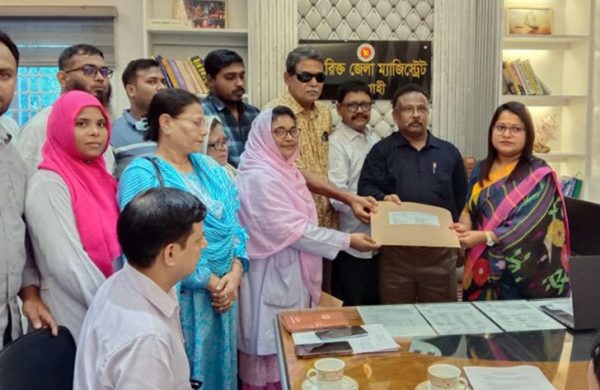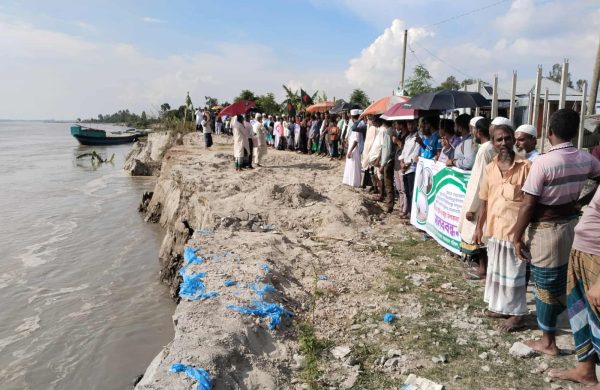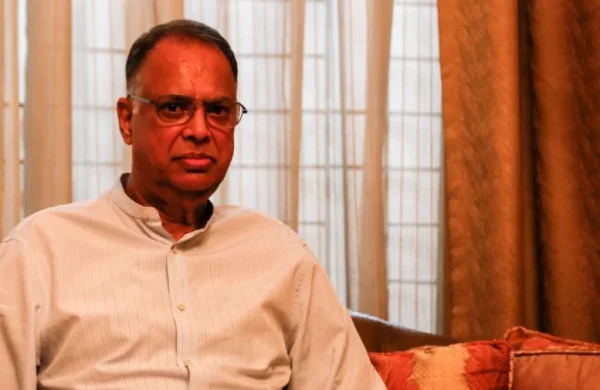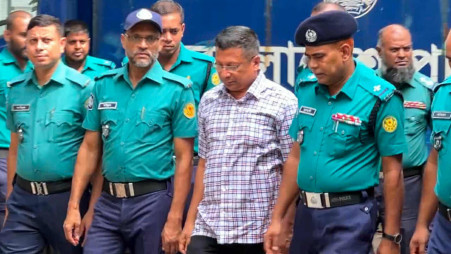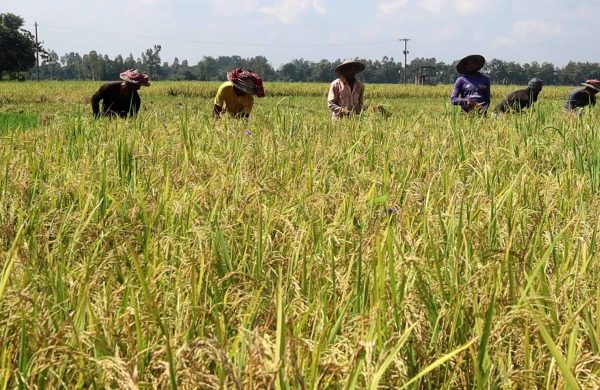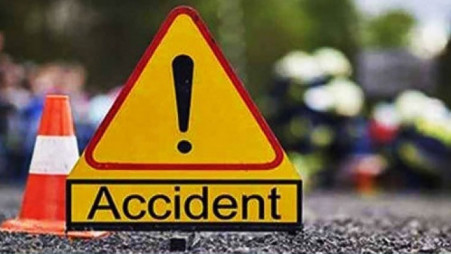Only two environment courts for 17cr people; yet public access denied
- Update Time : Thursday, May 22, 2025

TDS Desk:
The struggle for environmental justice in the country is clearly evident in the experiences of Syed Saiful Alam Shovan, a rights activist, and Barrister Nishat Mahmood, an environmentalist and lawyer. Their attempts to seek legal redress for environmental concerns have consistently been thwarted by systemic barriers within the environment court framework.
Their experience highlights a critical flaw: the lack of direct public access to the environment court. Shuvon was compelled to first approach the Department of Environment (DoE) — the designated gatekeeper for environmental complaints –when he sought to file a case concerning the pollution and encroachment of the Buriganga River. Though he lodged a formal complaint to the DoE, he received no solution, effectively leaving him without redress.
Similarly, Nishat Mahmood, despite her legal expertise, has repeatedly encountered obstacles since 2017 in her attempts to initiate environmental lawsuits.
The inherent legal complexities ultimately deterred them from pursuing the matter further in the specialised court as the existing legal structure mandates DoE involvement before a case can reach the environment court, delaying the filing of cases, investigations, prosecution and appropriate actions.
ENVIRONMENT COURT
Section 6 of the Environment Court Act, 2010 stipulates that the DoE director general or any other person authorised by him may institute cases directly in court or lodge a complaint with a police station for trial of all offences under environmental laws.
According to section 6(3), the Special Magistrate Court, which also deals with environmental issues, is also barred from taking cognisance of an offence except on the written report of a DoE inspector. Section 7(4) says that the Environment Court is barred from receiving any claim for compensation except upon the written report of the inspector.
On the other hand, the environment courts do not even have any suo motu power to take cognisance of matters regarding environmental pollution, which leads to a very poor number of cases in the Environment Court and Special Magistrate Court.
On top of that, there are only two environment courts for a population of about 17 crore in the country.
The specialised court fails to serve what it was formed for due to not general people having access to it, and inadequate number.
“It is unlikely that a case will be filed in a court where the aggrieved person or organisation does not have the opportunity. And since the number of environment courts is very low, cases there will not be disposed of quickly. These will not fulfil the aim and objective of the special court,” said Barrister Nishat Mahmood.
Bangladesh is among the few countries that have a separate court on the environment. For five years in a row, Bangladesh has been regarded as one of the top five most polluted countries in the world. Dhaka, the capital city of the country, has also been consistently ranked among the most polluted cities globally.
The Environment Court was introduced for the speedy trial of environmental violations. However, the Bangladesh Environment Conservation Act, 1995, being the parent law concerning the environment, provides ample power to the DoE chief. The 1995 law outlines that if someone wants to file a case, they must first report the issue to the DoE. If the matter is not resolved, the aggrieved person can file a case with the Environment Court with DoE permission.
This process is the main obstacle to swift and accessible environmental justice, hindering direct access to the Environment Court for affected individuals.
The DoE has limited inspectors across the country, making it difficult to establish and support the Environment Court. On the other hand, the Special Magistrate Courts are also overburdened with regular cases, further straining their ability to address environmental issues.
“Will the DoE allow anyone to file a case easily? And will anyone go through so many tedious processes, sufferings and complications for the sake of the environment? Like other criminal offences, people cannot file a case with the police station or court under this law. Such a provision is nothing but complexity,” said Sharif Jamil, coordinator of Waterkeepers Bangladesh.
Nishat Mahmood said, “I have failed several times in filing a case regarding the air pollution issue in Dhaka city. However, the DoE is unable to solve this problem.”
Shovan said, “I refrained from going to the environment court to avoid suffering and complexity, even though I did not get any redress from the DoE.”
In such a situation, environmental proponents underscore the need for amending environment laws, particularly the Environment Court Act, to ensure people’s direct access to the environment court.
“The Environment Court Act does not allow direct filing of cases. Amendment to the law is necessary to streamline processes, reduce costs and improve enforcement capacity,” said Advocate Syed Mahbubul Alam Tahin, a public health and environment policy expert and secretary of the Center for Law and Policy Affairs (CLPA).
Sharif Jamil said the existing law itself is a barrier to fulfilling the purpose of the law. “The Environment Court Act, 2010 takes a restrictive approach to access to environmental justice. The direct access of individuals and organisations must be ensured through the amendment. The law should also be amended to transfer the responsibility of investigating environmental cases to law enforcement agencies,” he added.
Although Section 4(1) of the law stipulates the establishment of one or more environment courts in each district, no new court has been set up since the law was enacted in 2010.
The two environment courts were set up in Dhaka and Chattogram in 2002. An appellate court was established in Dhaka for the whole of Bangladesh. These courts were later reconstituted under the 2010 law.
Many people know that there are three environment courts, one of which is in Sylhet. However, there is no such court in Sylhet. It was known that an environment court was set up in Sylhet in 2005, but it is no longer functional.
“We, along with many others, often hear this. But it is a misconception,” said Md Badrul Huda, an assistant director of DoE in Sylhet.
Shahriar Arafat, a deputy secretary at the Law and Justice Division, also confirmed the matter.
Talking to this correspondent, Tahin said the Environment Court is ineffective for two reasons– common people cannot directly access the court without a non-judicial authorisation, and no court is within reach.
“Environmental offences happen everywhere every day. People’s rights are violated by not establishing an environment court in every district. It must be established in all 64 districts,” he said.
As of 21 May 2025, a total of 673 cases have been filed with the environment courts in the last 23 years. Of them, 207 have been disposed of, while 466 cases are still pending. On average, 29 cases have been filed in this court per year.
Khandokar Mohammad Tahajut Ali, assistant director (law) of DoE, told the Daily Sun that of the cases, charge sheets for 608 cases were filed.
According to him, 1,204 cases were filed in the special magistrate courts at the time. Of them, 1081 have been disposed of.
In the 23 years, about three times more writ petitions have been filed with the High Court than in the Environmental Court over environmental issues. A total of 2,071 writ petitions have been filed. Of them, 1,017 have been disposed of.
An average of two writ petitions is filed with the High Court on environmental issues per week, a rate not usually seen on any other issue.
If aggrieved individuals or organisations had the opportunity to go to the environment court, there would not have been such a large number of writs. A writ is typically filed when no other legal remedy is available or when no other equally efficacious remedy is provided by law.
The Environment Court also faces challenges due to a lack of public awareness, skilled manpower and expert knowledge among judges, and insufficient conviction rates.


